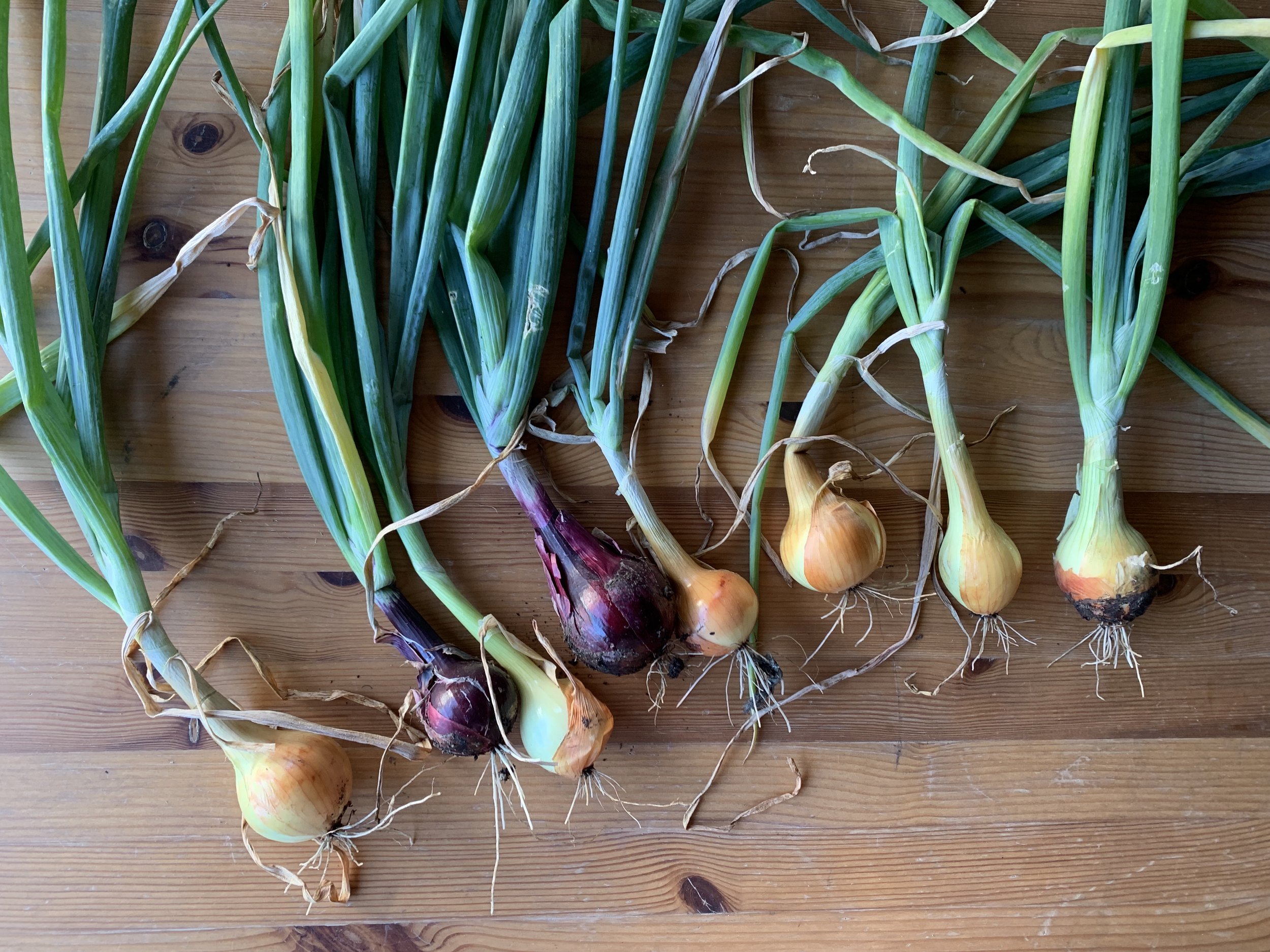
Why it matters
“Food is a process, a web of relationships,
not an individual ingredient or commodity.”
–Dan Barber


“Food is a process, a web of relationships,
not an individual ingredient or commodity.”
–Dan Barber
Gardening burns a lot of calories and is considered a moderate-intensity exercise.
According to the CDC, you can burn about 330 calories doing one hour of light gardening, which is more than walking at a moderate pace for the same amount of time.
This type of exercise can also lower your blood pressure.
Additionally, being outside in the sun prompts your body to produce vitamin D, which helps your body absorb calcium, which is essential to bone health.
As a culture, we have drifted away from knowing exactly what we’re putting in our bodies. However, having a home vegetable garden gives you complete autonomy over your food.
Additionally, the process of gardening, literally getting your hands dirty, exposes your body to friendly microbes in the soil. Just like the world around us, a diverse gut helps to keep our internal balance.
Here at Twisted Root, we are passionate about the important role that diet plays in supporting a healthy microbiome, and have seen first hand what a different a healthy gut can make for those struggling with GI Autoimmune diseases, like Crohn’s Disease. We would be happy to talk with you more about our experience!
Gardening is an ancient practice, not only meant for growing food, but also for taking a moment to relax, focus, and connect with nature–and each other.
Taking time in the garden improves your mood by giving you a purpose in that moment; being in nature and tending to plants also helps to relieve stress.
Additionally, nourishing and helping your garden flourish helps boost self esteem as you see all your hard work pay off.
Another huge part of backyard gardening is promoting a sense of community . Sharing your experience (and produce!) with friends and family helps build your social connections and support system.
Here at Twisted Root, we plant gardens that are intensely biodiverse. Not only does this help deter issues by interspersing plants to confuse garden pests, but it helps create a space for wildlife, like birds, pollinators and other beneficial insects, to live and flourish.
Our all-organic practices also promote soil health, which is the basis for all plant life.
Food-producing plants act as highly-effective air purifiers. They absorb carbon dioxide, along with other pollutants, and produce clean oxygen.
Veggies are much more effective at this process than grass is, so converting your lawn to a food-producing Eden is not only a beautiful, healthy thing you’ve done for yourself and those around you, but also for the environment.
